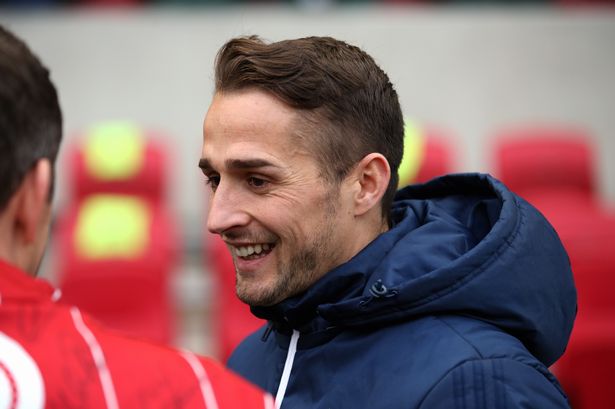
I’m really excited about Stoke City season and Steven Schumacher’s high risk, high reward strategy

New Stoke City coach Chris Cohen explains why player development shouldn’t be about age, the work he does with club analysts and a project he presented about the adult brain that was ‘more simple than it sounds’
There is a cluster of players in their late teens and early 20s who stand out on the Stoke City squad list. And Chris Cohen, who has joined as new assistant head coach this summer, is looking forward to getting to work with forwards like Bae Junho and Emre Tezgel, defenders like Freddie Anderson and Jaden Dixon, through pre-season.
But one of the mantras that he has delivered in his first few years in coaching – and he is still only 37 – is how players can still improve at any stage of their career.
So there was Stoke youth graduate Lasse Sorensen at Lincoln City in the second half of last season, who, at the age of 24, evolved into a key player in the side that just missed out on the play-offs and earned a summer transfer to Huddersfield Town.
But there was also Stoke old boy Cameron Jerome, who was turning 35 when Cohen landed in his first senior coaching job with Luton Town. He proved an important player starting and from the bench in a side that upset the odds and reached the Championship play-offs.
“It just looks a bit different,” said Cohen. “I will try to help someone like Cameron Jerome, an ex-Stoke player who everyone will know, in a very different way to how you might help an 18 or 19-year-old. It looks really different in what you do out on the grass – and Cameron Jerome probably ended up helping me a lot more than I helped him by taking our strikers and making them better.
“But I think everyone wants to develop, everyone wants to be cared about no matter what profession or world you work in. That’s the most exciting bit for me. It’s making players aware of how they might develop and getting better.
“You’ve got to have an evidence base. I wasn’t going to make Cameron Jerome, for example, better at finishing – he was already really good at that – but there might be little bits around the game or it might be him getting a benefit from giving back to the football club.
“I don’t sit there and preach to a player that I’m going to make them better. Most of the time it’s just purely making them aware of where the areas are they might need to get better and them deciding what that looks like. If they’re accountable for it there’s a much bigger chance that they’ll do it rather than me or any of us being stood on the touchline and shouting at them
“It’s worked quite well in the past and hopefully it works well now.”
Be the first to comment